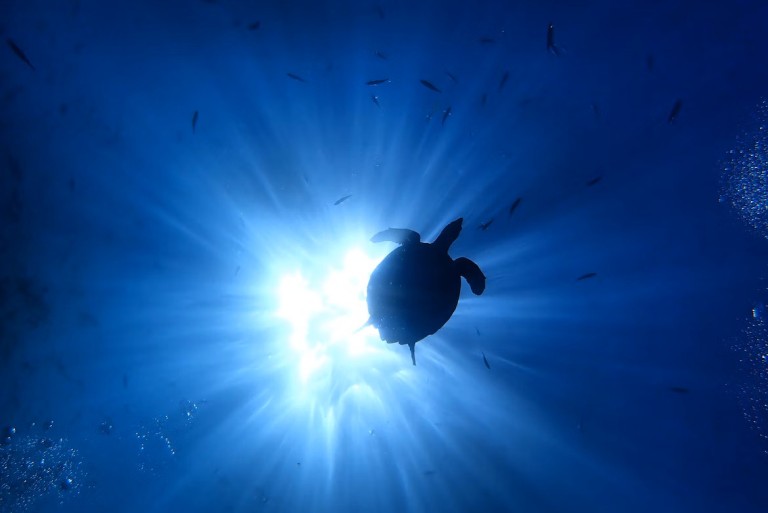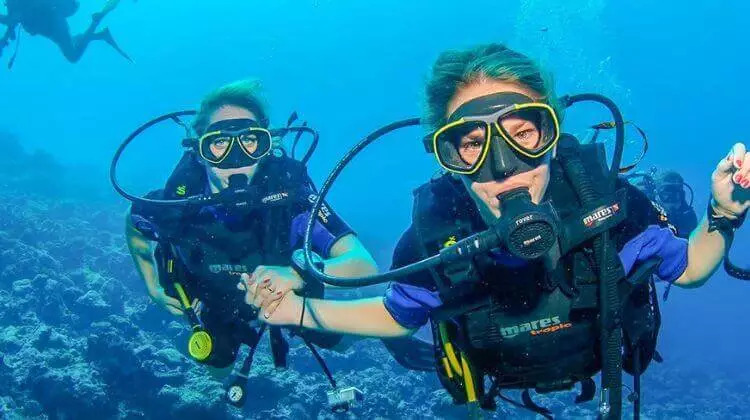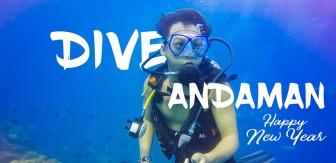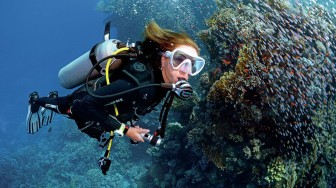Diving Sites in Port Blair




-
Aug 08, 2022
Essential Tips for Your First Scuba Dive in Andaman Islands
Counted among the most enthralling adventure activities, scuba diving is a thrilling experience and water sport that includes complex technical knowledge as well as advanced safety protocols. One learns them either in a diving course or when the dive instructor covers them in the introductory dive. All this makes your scuba diving experience easy, enjoyable, and safe. If you are planning your first dive, then Aqua Nomads will help you with it so that you can have an unforgettable experience and be safe at the same time.
In this article, we present the most important things that you should keep in mind before going on your first ever scuba dive.
#1 Select a Reliable Dive Shop
Scuba diving is a safe sport provided that a dive centre follows all standard safety measures. It involves good equipment, air, and trustworthy dive staff. If you are going diving, then you should never compromise on these things. Thus, do your research beforehand in order to save yourself from the last-minute hassle. The best thing to do is to book your dive with a PADI-certified facility or a PADI dive centre. The Professional Association of Diving Instructors (PADI) is a recreational diving membership and diver training organization that is valid throughout the world. It has expert dive masters, who have vast experience in talking PADI sessions as well as scuba dives. They are highly experienced in taking care of you under the water.
If you are planning to scuba diving in Havelock Island (officially known as Swaraj Dweep now), then contact Aqua Nomads–a 5-star PADI facility. Whether you want to go for your first dive or are willing to continue your diving education, this dive shop is perfect for you.
#2 Read the medical form
One of the most crucial prerequisites for scuba diving is going through the medical requirements. Some medical conditions could pose a risk to the diver when diving under pressure. Going through the medical form is always better which is available online as well. If you maintain a minimum level of health, then you are good to go. But in case you have some doubts regarding a specific condition, then you can discuss it with us and we will provide you insights. A doctor’s certificate will approve you for diving in some cases. Be completely honest as there is health-related science involved behind scuba diving. The most important thing is that you should be absolutely safe under the water.
#3 Feeling Scared is Normal
The first time of anything is always scary. For instance, your first time on stage, first job, first exam, etc. It is obvious to feel afraid when you are doing something new. You are not alone in this. All of us have been there at some point in our lives. Around 500 people dive in Havelock Island for the first time every day. Even after going under the water with sweaty palms, they come out asking for more. Scuba diving is not so tough and nothing can stop you if you have the will to take the plunge. Fear is not that bad actually as it makes you feel more alive. It is part of doing something for the first time. So don’t worry much thinking about how scared you are. Acknowledge it and take the leap of faith anyway.
#4 Clarify your Doubts
The staff at Aqua Nomads would love it when you ask more about scuba diving. We are there with you at every step of your diving journey and want this to be the most incredible experience of your life. If you have any doubts or if there is anything that you don’t understand in your briefing, training session, or dive, then kindly ask us those questions. Don’t worry about sounding stupid. We all have been there. It is important that you go into the water with a clear mind. Our instructors will share their knowledge of scuba diving as well as marine life with you.
#5 Respect Aquatic Life
It is a golden rule of scuba diving that you should never touch anything under the water. Dive with the right mindset. Kindly keep in mind that a reef is not a zoo; it is the home of aquatic life. When we dive, we are visiting the homes of fishes and other lives. So you should behave just like you would expect guests to behave when they visit your home. Therefore, no touching, no poking, no harassing, and no asking us to bring a fish to pose with you in your photo.
Apart from a coral-free rock, you are not supposed to touch anything under the water. It is a good practice to protect coral reefs. Moreover, it is to keep yourself safe as well. There are sharp corals, poisonous marine plants, and marine creatures that may bite when feeling threatened. Keep your hands close to your body so that everyone stays unharmed. Protect your buoyancy so that you can hover easily over the reefs and thus, don’t feel the need to touch anything.
#6 Listen to your Instructor
Once you are at the shore or on the dive boat, listen carefully to your instructor. Do not be overconfident and assume that you know everything. Follow your guide’s instructions properly.
#7 Double Check all your Scuba Gear
While you are approaching your dive site, you will be required to set up all your scuba gear. Take your time and double-check everything is working properly. Ask your guide or instructor in case you are not sure about anything. Don’t ever hesitate.
#8 Never Hold your Breath
Scuba diving is an extraordinary experience because you are doing something technically impossible, which is breathing under the water. While diving, breathe normally at all times and never hold your breath. If you hold your breath, then it can cause an air embolism (where an air bubble enters the bloodstream). It can cause a serious and potentially fatal injury.
#9 Equalize Frequently While Descending
When going deeper and deeper, you will be required to equalise your ears because of the change of pressure. You should do it frequently before feeling any pain. Doing this will avoid injury to your inner ear.
#10 Stay Aware of Where your Instructor is
You may spot something interesting under the water but don’t be tempted to swim off on your own. Point it towards your guide and head towards it together from a distance. Staying with your instructor is crucial for your orientation and safety. In case you lose each other, then just look around for a minute and if you don’t find them, then slowly start ascending to the surface. Your guide should have done the same.
#11 Keep an Eye on your Air Gauge
As long as you have air in your tank, you can stay down. That’s why, you should be aware of when your tank is half full and a quarter full in order to plan your return to the surface accordingly. If you are diving for the first time, then your instructor will check it periodically.
#12 Don't Over-Exert Yourself
Scuba diving is an adrenaline sport. However, you should be completely relaxed when you are under the water. There is no point swimming fast over reefs. The slower you go, the more you will see. Don’t move so fast that you get out of breath. Signal your instructor in case you feel tired. Have some rest at a coral-free rock.
#13 Always Ascend Slowly
You should ascend slowly from a dive while breathing normally. If you come up fast from a dive, it can cause “the bends” or decompression sickness as nitrogen is forced into the bloodstream. The nitrogen in your body has a chance to dissipate when you come up slowly from a dive and do the safety stop. Therefore, no harm is caused.
#14 Debrief with your Instructor
After your dive, discuss with your instructor how it went and keep in mind what you can improve next time. This way, you can have maximum fun and safety during your next diving adventure. Try to remember each and everything your instructor tells you. This will be highly beneficial for you.
#15 Tell your instructor if you feel strange
If you are feeling weird after your dive, then don’t keep it to yourself. Let your guide know about it. Many people feel exhausted because they are not used to the exertion of physical exercise. But if you are feeling anything else, then tell your instructor.
#16 Do Not fly Until at Least 18 hours After a Dive
Do not fly until at least 18 hours after your last dive as you have excess nitrogen in your system. If time is not allowed beforehand for the nitrogen to dissipate, then flying in a pressurized environment can cause decompression sickness. This is a very important rule of scuba diving and you should not ignore it at any cost.
Diving Sites in Port Blair
Diving Sites in Havelock Island
Diving Sites in Neil Island
.jpg)
.jpg)


.jpg)